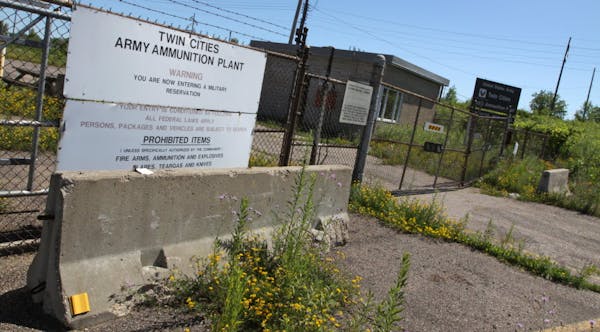St. Paul homeowners could face hefty property tax increases next year if voters overturn the city's system of organized trash collection on Nov. 5.
According to a presentation Monday to local government leaders in Ramsey County, the owner of a median-valued St. Paul home ($199,800) would face a property tax increase of $356, or 12.6%, if critics prevail at the polls and the city has to pay about $27.1 million directly to haulers.
The City Council will decide Wednesday whether to consider that potential outlay when setting its maximum tax levy for 2020. The council has to make that call by the end of the month, well before it knows whether voters have approved or rejected organized trash collection.
The council's action could make property taxes another factor in November's elections, which will decide all seven council seats in addition to the future of trash pickup.
Before the Minnesota Supreme Court ordered the city to hold the referendum, Mayor Melvin Carter had proposed a 4.85% increase in the city's tax levy. Under that scenario, the owner of the city's median-valued home would see an increase of $171, or 6%, according to this week's report.
Unlike property owners elsewhere, St. Paul taxpayers get an early look at property tax projections because of the distinctive nature of a city-county-schools committee created by state law in the 1990s. The calculations take into account the levy proposals from all three jurisdictions.
Ramsey County Commissioner Victoria Reinhardt, a member of the panel, said Monday that it was good for the public to know the ramifications of the trash vote.
"This is going to have an impact," she said. "We have to spell it out."
Trash collection fees under the current system range from about $245 to $410 per year, according to the city, plus an annual fee of about $25.
Monday's presentation by Chris Samuel, the county's auditor-treasurer, came a year after St. Paul faced a similarly fluid situation involving a then-pending community vote on whether to fund an additional $17.3 million a year for St. Paul Public Schools. Voters backed it overwhelmingly.
For the 2020 calculations, Samuel included potential increases in county and school district levies of 4.75% and 5%, respectively, plus a 7.3% market value increase for the city's median-valued home.
Bills can run higher in individual neighborhoods based on market value gains.
Samuel projected the effects of an additional $27.1 million in city spending on bills at the neighborhood level, too. Under the mayor's original tax plan, median-valued homes in five of the city's 17 planning districts would show double-digit percentage increases, with Frogtown topping the list at 21%.
If organized collection is overturned, and the city pays the $27.1 million to haulers, tax increases for median-valued homes in 15 of the 17 planning districts would be in the double digits, percentage-wise, with Frogtown at 28.4%.
Council Member Rebecca Noecker, a panel member, said a decision to add $27.1 million to the levy would not be about the city predicting it would lose the trash referendum but about it acting responsibly.
Anthony Lonetree • 612-673-4109
8 months in jail for Blaine man who caused 120-mph crash hours after he was caught speeding

Daughter sues St. Paul, two officers in Yia Xiong's killing

